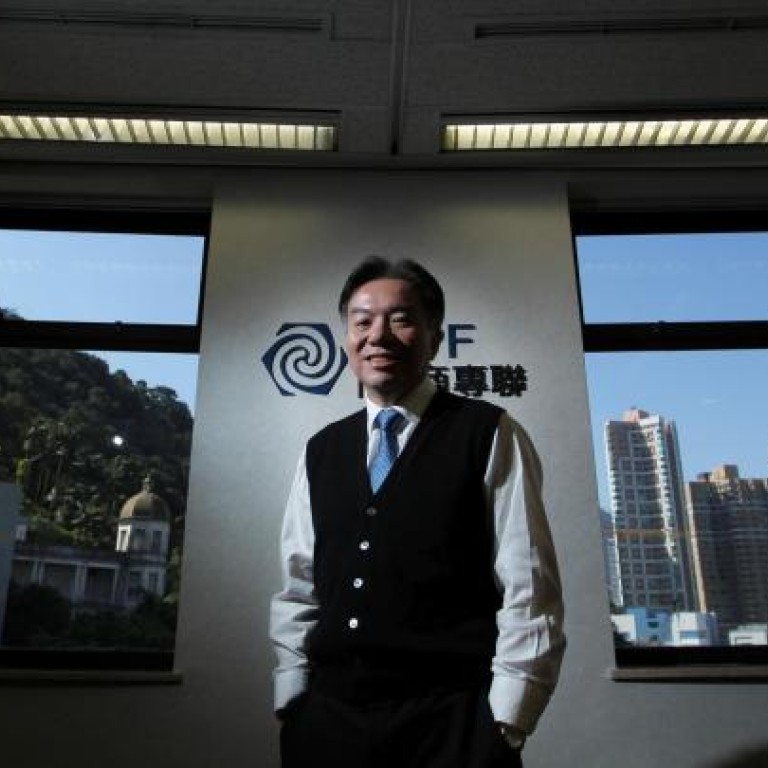
Bring in mainland to help technology innovation, says Hong Kong NPC deputy
New NPC deputy says Hong Kong should bring in talent from across border in effort to become leader in innovative technology
Hong Kong should develop its technological research and innovation sector by bringing in mainland talents, according to David Wong Yau-kar, a newly elected local deputy to the National People's Congress.
Wong, 55, said he hoped to use his new role to help the city better integrate with the mainland. "I believe that when Hong Kong is doing well, it is already making a great contribution to the nation.
"Integrating with the mainland will bring mutual benefits, rather than one side taking all the gains and leaving nothing for the other," he added.
Wong, who is chairman of the Business and Professionals Federation of Hong Kong think tank and a member of the government's Preparatory Taskforce on the Economic Development Commission, won a seat in the nation's parliament last month. He clinched 1,255 votes from the 1,620 electors chosen to select the 36-strong Hong Kong delegation.
Financial Secretary John Tsang Chun-wah raised eyebrows when he warned on Sunday against "blindly" pursuing new industries to drive growth, and rejected criticism that Hong Kong had relied too much on its so-called pillar industries - finance, logistics and trade, tourism and professional services. Some economists faulted him for lacking long-term vision.
Responding to Tsang's comments, Wong said: "I agree that we have to strengthen pillar industries. But at the same time, we must make our industrial structure more diversified. There is no conflict between the two."
Innovation and technology could be a driving force in the city's fight to keep its competitive edge, he said, because Hong Kong already had the necessary preconditions, such as the protection of intellectual property rights, free flow of information and personnel, plus international connections.
"It is possible that state-level research institutions from the mainland could set up branches in Hong Kong," Wong said. "That would bring mainland research and development resources and expertise to the city."
Innovation and technology research was named one of six "new pillar industries" the city would develop actively by then chief executive Donald Tsang Yam-kuen in his 2009 policy address. The other five were cultural and creative industries, education, testing and certification, medical services, and the environmental sector.
Some critics say there has been hardly any progress made in the innovation and technology research sector since then, a view that Wong endorses.
The problem, he said, was not that the sector was destined for mediocrity but rather the lack of long-term planning and follow-up actions by Donald Tsang.
"Singapore has successfully developed the same 'pillar industries' that we are pursuing, but they are more diversified than us, with a smaller population," Wong said.
The city should learn from the experiences of Singapore and Switzerland, or risk being outplayed by other Southeast Asian economies, he warned.

